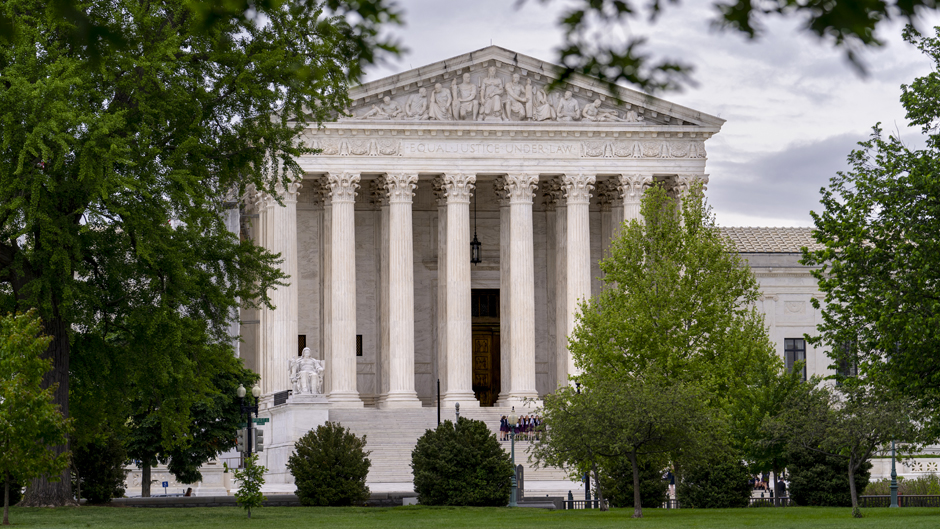A 2022 Gallup poll showed continued erosion in the trust and job approval of the Supreme Court. Both ratings—47 percent and 40 percent, respectively—were historic lows for the nation’s highest court and included a 20-percent drop in trust within the past two years.
Media reports relating to payments, accommodations, and financial decisions associated with Justice Clarence Thomas have unleashed the latest media firestorm and call for the need for the court—the only U.S. court that has no formal ethics code—to enact some measure of reform.
“The time has come. There have been some indiscretions through the years on both the liberal and conservative sides of the court, yet there’s been so much in the news lately,” said Jan Jacobowitz, a University of Miami School of Law lecturer and founder and owner of Legal Ethics Advisor.
Jacobowitz suggested that the court could help its own case by better articulating the ethical standards for the justices.
“In this day and age and in the tenor that we sit—the volatile nature of our society—the court would be well-served to do so,” she said. “No one’s censoring a particular justice, nobody’s moving for impeachment, no one’s compelling anyone to resign, the best we’re doing at this point is asking: ‘Hey, what about an ethics code?’ ”
The American Bar Association (ABA), the national voice for the legal profession, developed the first Judicial Canon of Ethics in the early 1920s. After Congress failed in its attempt to impeach a district court judge who held positions as the first Major League Baseball commissioner and federal judge (drawing salaries for both posts), the ABA censored the judge thereby agreeing that his conduct created a damaging perception of impropriety in its estimation.
Jacobowitz tracked that historical process in a forthcoming article she wrote for the Texas Supreme Court Historical Journal. She suggested that the current situation might serve as a similar catalyst for the court to set its own standard and quell misapprehensions about its ability to self-monitor.
She noted that at its annual midyear meeting this past February, the ABA passed a resolution urging the Supreme Court to adopt a code of judicial ethics binding on its justices that is comparable to the code of conduct for other U.S. judges.
Some have suggested that Congress, which has its own written code of ethics and oversight process, should set a code for the Court.
That issue, among others, was hotly debated at a Senate Judiciary Committee hearing last month to discuss Supreme Court ethics reform. An array of judicial experts shared their views on whether Congress had the authority to set a standard.
Sen. Angus King (I-Maine) and Sen. Lisa Murkowski (R-Alaska) have introduced legislation that would compel the court to create a code and hire an ombudsman.
Patrick Gudridge, professor of law and dean’s distinguished scholar who teaches constitutional law, suggested that “congressional proposals might in any case be a useful prompt.”
“If Congress framed thoughtful standards and the Supreme Court rejected them—for itself and other federal courts—maybe the court might feel a need to promulgate meaningful standards itself,” Gudridge suggested. “That’s maybe not a bad result.”
Gudridge, who in 1991 and 1992 assisted Justice William Brennan in organizing and teaching a seminar at the University following his retirement from the Supreme Court, questioned the supposition that ethical standards or an enforcement mechanism to oversee the court and justices’ actions are evident.
“Do we know what standards we would like to fix?” he asked. “The same standards for all parts of government—ideally, right? What is the process for working out those standards? What is the state of play in Florida and other states?”
Republicans on the judiciary committee and elsewhere have rejected the current calls for ethics reform as a ploy by progressives to disparage a conservative-leaning court.
“Ploys are part of the ordinary business of American politics,” Gudridge pointed out. “That there are often two levels in political argument is no surprise and is usually not scandalous. Our government is an adult enterprise.”
He noted that, throughout the Supreme Court’s history questions relating to the ethical behavior and actions of High Court justices have surfaced periodically.
“We have not always needed a Supreme Court plainly running right, though that is not to say that a clearer statement of ethical expectations would not be a very good thing,” Gudridge said.
In May, Supreme Court Chief Justice John Roberts presented a statement of ethics signed by the nine jurists to the Senate Judiciary Committee and more recently was quoted as saying that there was more that the Supreme Court can do to “adhere to the highest standards” of ethical conduct, though he offered no specifics.
“I don’t see the downside to establishing an official ethics code,” Jacobowitz said. “The underlying public policy has always been to support the public’s confidence in the judiciary and the rule of law,” she added.
“With ratings at a historic low,’’ she continued, “why not give the public a little more confidence? Why not have some guidelines so that if any of the justices engage in conduct that creates controversy, the response may be: ‘You might not like this, but the ethics code stipulates that the conduct is permissible. Or in the alternative, your analysis is correct, there’s a violation of the code, where do we go from here?’ ”

